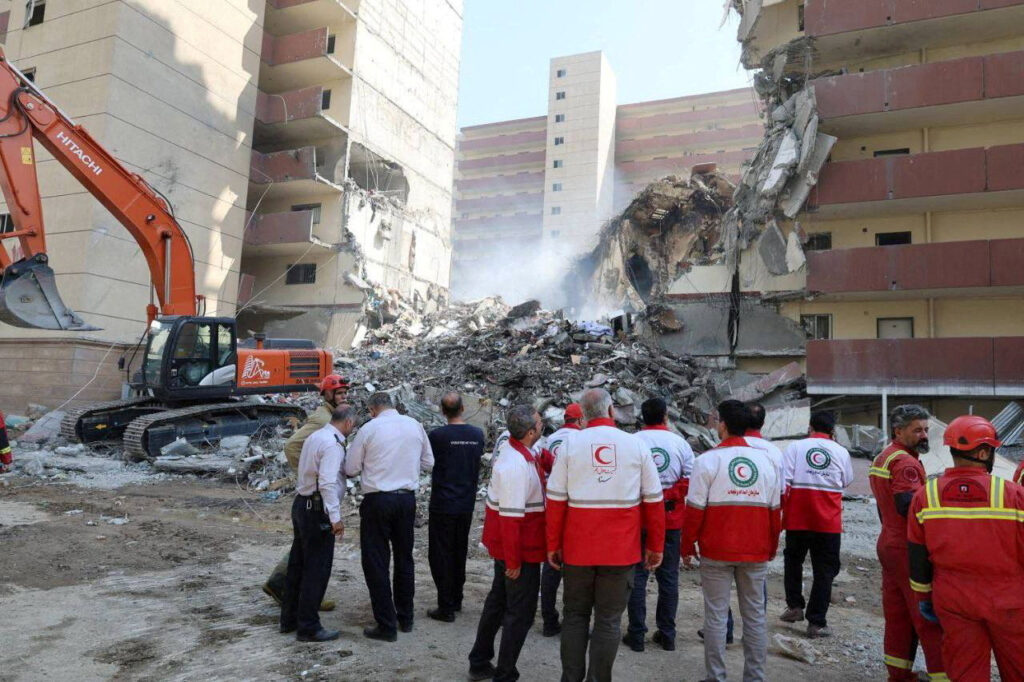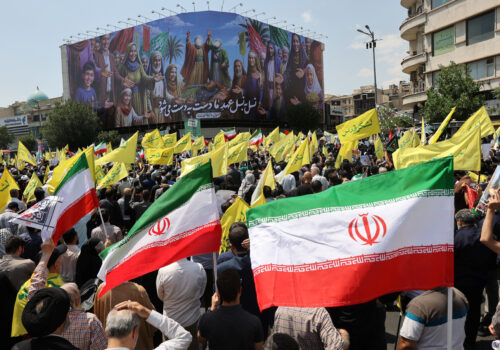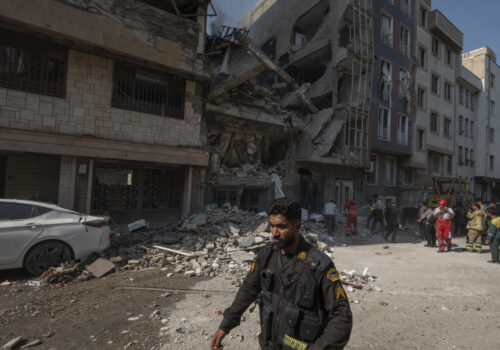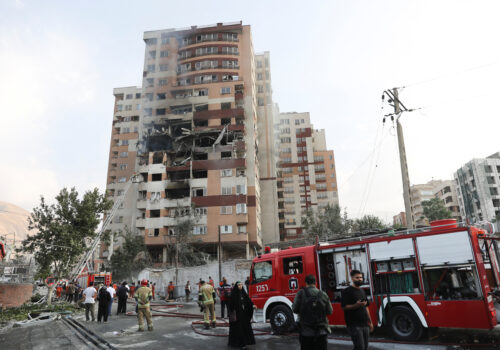GET UP TO SPEED
The Natanz nuclear site severely damaged. Dozens of Iranian military leaders and nuclear scientists killed. A region on a knife’s edge. Israel’s extraordinary military operation against Iran early Friday in the Middle East marks another major turning point for a region that has been experiencing dizzying upheaval since Hamas’s attack against Israel on October 7, 2023. As Iran responded with a wave of drones and Israel continued to hit military and nuclear sites on Friday, we turned to our experts to assess the fallout.
TODAY’S EXPERT REACTION BROUGHT TO YOU BY
- Daniel B. Shapiro (@DanielBShapiro): Distinguished fellow with the Atlantic Council’s Scowcroft Middle East Security Initiative and former US ambassador to Israel
- Kirsten Fontenrose: Nonresident senior fellow at the Scowcroft Middle East Security Initiative and former senior director for the Gulf at the US National Security Council
- Shalom Lipner (@shalomlipner): Jerusalem-based nonresident senior fellow with the Scowcroft Middle East Security Initiative and former advisor to seven Israeli prime ministers
- William Wechsler (@WillWechsler): Senior director of the Council’s Middle East Programs and former US deputy assistant secretary of defense for special operations and combatting terrorism
Attack mode
- With these strikes, “Israel demonstrated its full penetration of Iran, and ability to wreak havoc across the Iranian system,” Dan tells us. “Iran has never looked weaker, and its ability to respond meaningfully will be tested.”
- Recent reassurances by Iran’s Islamic Revolutionary Guard Corps to political leaders that the country’s “air defenses could withstand an Israeli strike” may have led Iran to conclude that it could slow-walk nuclear negotiations beyond US President Donald Trump’s two-month deadline, Kirsten notes. That, in turn, may have led Israel to conclude that it was time to strike. “The generals behind those white lies were the first targets” of Israel’s operation, she points out.
- Filing from Jerusalem, Shalom says Israeli leaders appear to have authorized the operation after concluding that Iran “was on the threshold of a dangerous breakthrough in its efforts to acquire a nuclear weapons capability.”
- Israel “took advantage of a rapidly shrinking window for military action, before relevant Iranian infrastructure became too advanced or well-protected,” Shalom adds. The widespread assumption that Israel wouldn’t make any military moves until after this weekend’s scheduled US-Iranian talks in Oman also “narrowed the opportunity for any element of surprise.”
Sign up to receive rapid insight in your inbox from Atlantic Council experts on global events as they unfold.
Tehran’s next moves
- In the hours after Israel’s attack, Iran fired more than one hundred drones toward Israel, though the Israel Defense Forces said it was able to intercept many of them. That won’t be the last word. “Iran’s reaction likely will include both direct attacks on Israel and retaliation via its remaining proxy groups,” Will predicts, though “the obedience of some of those proxies is in question,” particularly amid reports that Hezbollah will not jump into the fight.
- While the first round of Israeli strikes appears to have caused significant damage to the Natanz nuclear facility, that’s not the only place where Iran was enriching uranium. “Iran will now be supremely motivated to sprint to a nuclear breakout at hardened, underground facilities,” Dan warns.
- Kirsten is keeping a close eye on the region’s Arab states, which have been subject to “tug-of-war diplomacy” between the United States, which would like them to once again help defend against Iranian retaliation, and Iran, which would prefer they look the other way.
- Shooting down Iranian projectiles that cross their airspace “is such a no-brainer that the United States would likely conclude that any munitions not reported or mitigated by Arab states were intentionally ignored,” Kirsten says. “Neither the United States nor its Arab partners want that kind of tension to arise.”
Wartime Washington
- On Thursday night in Washington, US Secretary of State Marco Rubio issued a statement making clear that Israel was acting unilaterally and the United States was “not involved.” By Friday morning, however, Trump was telling ABC News that Israel’s strike was “excellent” and warning Iran that there is “more to come.”
- The United States could be pulled into the war via attacks by Iran or its proxy forces on US personnel in the region, Will tells us. Alternatively, if Israel’s attacks against Iranian nuclear facilities prove ineffective and instead “provide Tehran with an excuse to race toward developing nuclear weapons, then US officials may conclude that their only option is to use military force to prevent this worst-case scenario.”
- Such a decision could “split [Trump’s] advisers and political base, amid accusations, and perhaps his own misgivings” that Israeli Prime Minister Benjamin Netanyahu “is attempting to drag him into war,” Dan observes. In any case, “Trump’s dream of a diplomatic resolution that ends Iranian [nuclear] enrichment appears dead.”
- Given “his strong objection to the US becoming involved in another war in the Middle East,” it would be “deeply ironic” for Trump to be drawn into another presidency-defining conflict, Will says. “At times like these, there is no substitute for Washington exercising decisive leadership, rather than waiting to be at the mercy of decisions made by others.”
Further reading
Fri, Jun 13, 2025
After Israel’s strikes on Iran, these four questions could determine the Middle East’s future
New Atlanticist By Jonathan Panikoff
The trajectory of the Middle East could be determined by how just a few critical questions are answered the coming days and weeks.
Fri, Jun 13, 2025
Unknowns, knowns, and early predictions about Israel’s strikes against Iran
New Atlanticist By William F. Wechsler
How long Israel’s campaign against Iran will go on is unknown. But even amid the uncertainty, don’t lose sight of what is already known—or at least what can already be surmised with high confidence.
Thu, Jun 12, 2025
Experts react: Israel just attacked Iran’s military and nuclear sites. What’s next?
New Atlanticist By
Our experts shed light on Israel’s major attack against Iran targeting its nuclear facilities and its implications for the region.
Image: Rescuers work at the site of a damaged building, in the aftermath of Israeli strikes, in Tehran, Iran, June 13, 2025. Iranian Red Crescent Society/WANA (West Asia News Agency)/Handout via Reuters.



